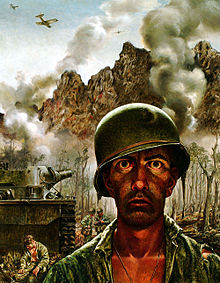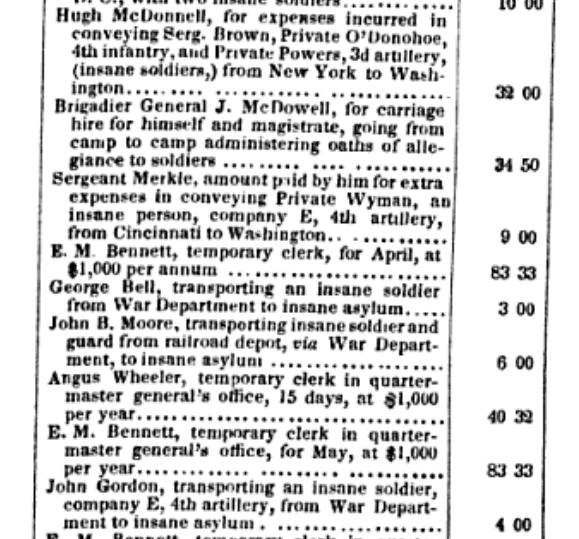I believe this is as much sociological as medical. Terms such as 'shell shock' or 'battle fatigue' were used from at least WWI - it was believed that shelling actually 'shocked' the brain - but there was far less understanding of, or sympathy for, the effect war could have on men (women were not generally involved in actual combat). The term 'NMF' was placed on military records at least up to WWI, possibly WWII, meaning 'No Moral Fibre', when men cracked under pressure. In societies that depended crucially on men defending borders, lands, resources and women, it was imperative that failure to 'do your bit' was stigmatised - there is the famous exhortation of Spartan mothers to their sons to 'Come with your shield, or on it!'. Losing your shield almost certainly meant you had fled before the enemy, throwing away your shield to run faster, whilst being brought home with it, even dead, denoted courage, and 'Rule Britannia' written in 1740 included the words 'And manly hearts to guard the fair!'
Only in the 20th century, when the horrors of trench warfare could be photographed, and poets were brave enough to write about the realities of war, together with advances in the study of psychiatry, was the real effect of combat slowly recognised. Combat Stress, originally the Ex-servicemens Welfare Society, was founded in 1919, and was ahead of its time in this respect - men were shot during WWI for desertion or failure to obey orders, where nowadays they might well be hospitalised before they reached breaking point. http://www.combatstress.org.uk/about-us/history-of-combat-stress/
Western industrial societies rarely if ever now require their young men to fight to the death, and war has become more technological and impersonal - as much - or more - about skills and equipment as hand to hand combat and beating the other man's brains out. Thus, we can afford, as a society, to understand and accept the personal cost of war, rather than dismiss it as 'cowardice'.


